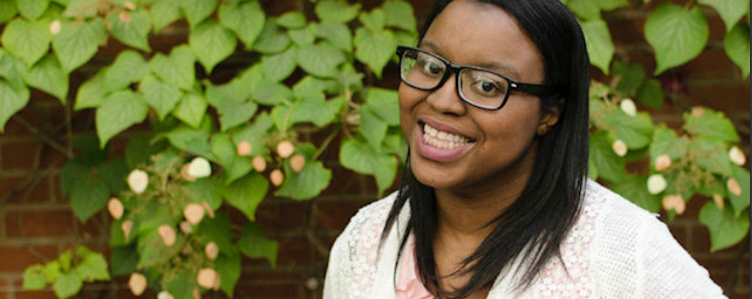Respect My Disabled Body
During my teenage years, I was very confrontational. I was also very angry and embarrassed to be in my body. This anger and shame, encouraged me to yell at and hate the strangers I caught staring at me in public places.
The staring happens to me a lot and it’s not because my outfits are cute. I have Cerebral Palsy, a physical disability that affects my right side. My Cerebral Palsy is a spastic hemiplegia which means only one side of my body is affected. This disability comes with delayed motor skills and reaction time, occasionally aching limbs, and a limp that people can’t seem to tear their eyes away from.
I am not the angry young girl I once was but I still see red when I, as politely as possible, call these strangers out and someone says to me, “Keah, don’t be mean or tell made up stories because people are just curious. Be nice to them.” The problem with trying to tell me how to cope with nearly constant eyes on my body when I enter a public space is this, I am not a science project. I was not made to be viewed, I hate the fact that I feel like I am on constant display, asked to answer for a body I did not choose but love all the while.
I don’t think I have to be nice to anyone who treats me like an object. I don’t think I owe those types of people my kindness, grace, or patience when they bring me only moments of shame and uncertainty. I question myself in these moments and regress back to the girl who hated herself. Often, I remember these people and moments long after they’ve forgotten about me and simply written me off as the limping girl they saw in X place.
When I come across a particularly rude stranger who is eager to make me the butt of a joke by shouting out questions along the likes of, “Why are you walking like that?” before joining their friends in a chorus of laughter or one I catch trying to take pictures of me, I don’t care if my anger startles them. I do not care about their curiosity. I care about the years it took me to get to a place where I liked my body and about not letting some strangers or their jokes and curiosity ruin that for me.
I am not a teacher and it is not my job to educate but I don’t mind teaching people through my work. I enjoy giving readers a glimpse into realities that don’t reflect their own in the hopes that they leave my work more aware of their own privileges and more open to understanding why the stories of people like me are necessary.
I tell my stories for the other people who look like me and want to see themselves and their narratives and I hope my work encourages them to share their own stories someday. I say all of this to say that curiosity is important but so is patience, kindness, and tact. I am an open book and I welcome your questions as long as you don’t assume that I owe you answers. I only ask that you treat me with the respect that you would hope for if you were in my situation.
People with disabilities are human beings, not science fair displays or here for you to laugh at. We have the right to the same spaces as able-bodied people. We may not have access to these spaces but we should and we shouldn’t have to go out into the world with our armor up just to protect ourselves from the light of public opinion.
Keah Brown is a 25-year-old journalist and writer who is passionate about proper mainstream representation of disabled people, especially disabled people of color. Keah created the viral campaign #DisabledandCute.
Header photo by Reid Beels




